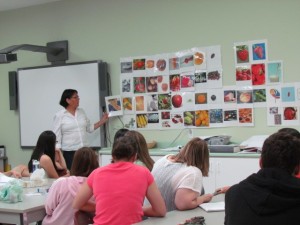At the end of July, a small group of volunteers stepped forward and committed themselves to teach and learn Mi’gmaq through this method. It’s called the Master Apprentice Program. Although not yet formally implemented yet here in Listuguj,
they’re getting the feel for what it’s like. I’m sure at some point they’d love to see this grow into a full blown program. We’ll be meeting with the small group of volunteers this Friday to get some feedback.
Hear what participants from British Columbia had to say about their Master Apprentice experience after committing over 300 hours over three years, only speaking their First Nations language.

